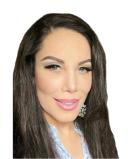Humor
How to Ace: “What’s your biggest weakness?”
Avoid Minefields in Your Job Interview, Part 2
Posted September 20, 2014
Most hiring managers will at some point pop every job applicant’s most dreaded question: "What is your biggest weakness?" And how you handle the query could ironically portray vulnerability – or your admirable character. It’s an interview classic because it measures so many personality attributes in one fell swoop.
This is the second in a series of “Avoiding Minefields in your Job Interview,” as there are a few questions that can make or break your success during this part of your search. And oftentimes there’s more than meets the eye in these queries.
While this particular question measures many traits, the underlying question translates to: “Is there anything I might be missing that should eliminate you from the running?” Since the question has a negative slant, it’s designed first to test your mettle, and second, your character.
“What’s your biggest weakness?” can be a minefield or gold mine in your job interview, depending on whether you take the high-risk path of waiting to see how the conversation flows - or opt for a more thoughtful, strategic approach.
This tough question is much like a hiring manager sifting through resumes looking for a reason not to hire you. Interviewers evaluate candidates with a critical eye as a form of due diligence, and putting you on the spot is often part of the process.
Try These Tips
Hiring managers want some sense of assurance that you are low-risk. Oftentimes red flags are set off by this answer, and it’s usually the extremes that are most incriminating. For example, if an applicant is flip or has no answers, those approaches will fall flat. Similarly, if candidates lament their personal frustrations in their zeal for honesty, that too will backfire. There is a happy medium.
• Don’t give flip, in-denial answers, e.g., “I can’t think of one,” “I really don’t know”… or “I have a weakness for dark chocolate.” Attempts at humor with this particular question can backfire.
• Do prepare yourself for this question so you don’t hem and haw. Your composure will demonstrate your ability to remain calm once on the job. But don’t sound like a droid with a robotic, canned response, either. Be ready to explain how you’re combating the problem in a positive way.
• Don’t be too specific: That will likely get you rambling. Also remember that hiring managers can play back your answers to any references you provide, so your integrity may be measured after you leave the room.
• Do remain honest, but not to the point of self-sabotage. You might choose an area that is very relatable or that has a redeeming aspect to it. Example: “I’m very verbal, which helps in situations that require a lot of interaction. Sometimes I could put more information in explanatory e-mails. It can be challenging, though, relying too much on technology - especially when the material is sensitive."
• Don’t use self-deprecating humor, as that brand of humor in this case is a career risk, e.g., "I easily lose patience with myself if I don't get things right. In fact sometimes I don't need any enemies, I can easily be my own!"
• Do objectively look at your own strengths and weaknesses. “I expect those around me to deliver their top performance. It can be difficult when people don't put in enough effort, yet they have highly valued skills. What I try to do in this situation is look for strengths and aim to build on that."
• Don’t let your mind wander off and fail to hear what the interviewer is really asking, e.g., “Oh, how ‘bout those Seahawks? They sure don’t have any weaknesses, right?”
• Do listen carefully to the hiring manager to better understand how your strengths match up with the position. You don't want to inadvertently cherry-pick a minor weakness that directly counters one of the major job requirements. But if the job isn't a fit, don't waste your time or the employer's. Remember that you can also parlay a discussion about weaknesses into a summary of your applicable strengths.
A few last points: avoid offering the trite and overused weaknesses: “I'm too much of a perfectionist” or “I work too hard.” At this point, those responses have become virtually meaningless. And keep in mind that interviewers do want to know that you’re interested in ongoing personal development.
Challenging interview questions about your "flaws" can be turned around to your advantage - and even help you reveal your best attributes, with some advance planning.
In my next post, I’ll discuss how to best answer another tricky interview question worth preparing for: “Why are you leaving your current job?”




